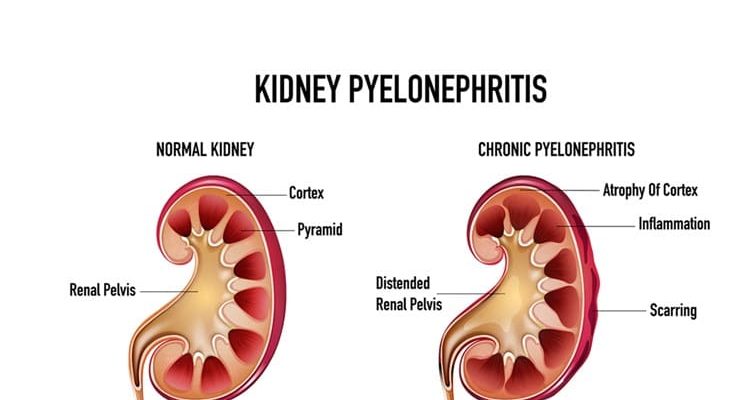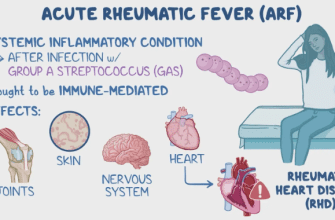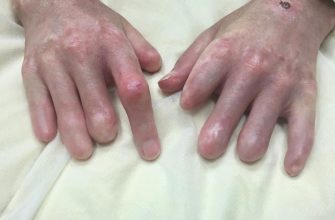Pyelonephritis is a type of urinary tract infection (UTI) that affects the kidneys. It occurs when bacteria or viruses invade the kidneys, leading to inflammation. This condition can be acute (sudden onset) or chronic (long-lasting).
Etiology
The primary etiology of pyelonephritis is bacterial infection, most commonly caused by Escherichia coli (E. coli). Other bacteria that can cause pyelonephritis include:
- Klebsiella pneumoniae
- Proteus mirabilis
- Enterococcus species
- Pseudomonas aeruginosa
In some cases, viruses or fungi may cause pyelonephritis but this is rarer.
Causes and Risk Factors
- Urinary Tract Obstruction: Kidney stones or an enlarged prostate can block urine flow, increasing the risk of infection.
- Reflux of Urine: Vesicoureteral reflux (VUR), a condition where urine flows backward from the bladder to the kidneys.
- Catheterization: Use of urinary catheters can introduce bacteria into the urinary tract.
- Previous UTIs: A history of recurrent urinary tract infections can predispose individuals to pyelonephritis.
- Diabetes: This can impair the immune system and increase susceptibility to infections.
- Pregnancy: Hormonal changes and physical pressure on the urinary tract can predispose pregnant women to pyelonephritis.
Symptoms
- High fever
- Chills
- Flank pain (pain in the side or back, where the kidneys are located)
- Nausea and vomiting
- Frequent urination
- Painful urination
- Cloudy, dark, or foul-smelling urine
- Fatigue
Diagnosis
- Medical History and Physical Examination: Assessment of symptoms and risk factors.
- Urinalysis: To check for the presence of white blood cells, red blood cells, bacteria, and nitrites in the urine.
- Urine Culture: To identify the specific bacteria causing the infection and determine the appropriate antibiotic treatment.
- Blood Tests: To look for signs of infection or complications.
- Imaging Studies: A CT scan or ultrasound may be performed to check for obstructions, kidney stones, or abscesses if the case is complicated.
Treatment
- Antibiotics: A course of antibiotics is essential for treating the bacterial infection. The choice of antibiotic may change based on urine culture results.
- Pain Relief: NSAIDs or other analgesics can help alleviate symptoms.
- Hydration: Increasing fluid intake to assist with kidney function and flush out the infection.
- Hospitalization: Severe cases, especially in pregnant women or those with complications, may require hospitalization for intravenous antibiotics and fluids.
Prevention
- Staying well-hydrated to help flush bacteria from the urinary tract.
- Urinating after sexual intercourse to clear bacteria from the urethra.
- Practicing good hygiene, especially for those at higher risk.
- Avoiding irritants such as certain feminine hygiene products.
- For recurrent cases, preventive antibiotics may be prescribed by a healthcare provider.
Complications
- Kidney damage: Reduced kidney function or permanent damage.
- Sepsis: A life-threatening systemic infection that can arise from kidney infections.
- Renal abscess: Pockets of pus that can form around the kidney.
- Chronic kidney disease: Sustained damage can lead to progressive kidney failure.
- Pregnancy complications: In pregnant individuals, pyelonephritis can lead to complications like preterm labor or low birth weight.







